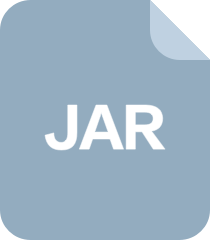
I
协同办公系统设计与实现
摘 要
本协同办公系统是针对目前协同办公管理的实际需求,从实际工作出发,对过去的
协同办公管理系统存在的问题进行分析,结合计算机系统的结构、概念、模型、原理、
方法,在计算机各种优势的情况下,采用目前 jsp 中最流行 ssm 框架和 eclipse 编辑器、
MySQL 数据库设计并实现的 。本协同办公管理系统主要包括系统用户管理模块、用户信
息模块、文件信息管理、个人事务管理、资料信息管理、登录模块、和退出模块等多个
模块。它帮助协同办公管理实现了信息化、网络化,通过测试,实现了系统设计目标,
相比传统的管理模式,本系统合理的利用了协同办公管理数据资源,有效的减少了协同
办公管理的经济投入,大大提高了协同办公管理的效率。
关键词:协同办公管理;ssm 框架;MySQL 数据库

II
ABSTRACT
This collaborative office system is aimed at the actual needs of collaborative office
management. From the actual work, the problems existing in the past collaborative office
management system are analyzed, and the structure, concept, model, principle, and method of
the computer system are combined. Under the various advantages of the computer, the most
popular SSM framework in the current JSP and the eclipse editor, MySQL database design
and implementation. This collaborative office management system mainly includes system
user management module, user information module, file information management, personal
affairs management, information information management, login module, and exit module. It
has helped collaborative office management to realize informatization and networking, and
has achieved the goal of system design through testing. Compared with the traditional
management model, the system has reasonably used the data resources of collaborative office
management, and effectively reduced the economic investment in collaborative office
management. Improved efficiency of collaborative office management.
【key words】:Collaborative office management; ssm framework; MySQL database

III
目 录
协同办公系统设计与实现 .................................................................................................I
摘 要 ...................................................................................................................................I
ABSTRACT ........................................................................................................................I
目 录...............................................................................................................................III
第 1 章 绪论.......................................................................................................................1
1.1 开发背景................................................................................................................1
1.2 开发意义................................................................................................................1
1.3 研究内容................................................................................................................1
第 2 章 主要技术和工具介绍...........................................................................................1
2.1 ssm 框架 ...............................................................................................................1
2.1.1. Spring 框架 ................................................................................................1
2.1.2 SpringMVC..................................................................................................1
2.1.3. MyBatis.......................................................................................................2
2.2 MySQL 数据库......................................................................................................2
2.3 jsp 技术 ..................................................................................................................2
第 3 章 系统分析...............................................................................................................5
3.1 可行性分析............................................................................................................5
3.1.1 经济可行性..................................................................................................5
3.1.2 技术可行性..................................................................................................5
3.1.3 操作可行性..................................................................................................5
3.2 需求分析................................................................................................................5
3.3 业务流程分析........................................................................................................6
3.4 数据流程分析........................................................................................................7
第 4 章 系统设计...............................................................................................................9

IV
4.1 系统结构设计........................................................................................................9
4.2 功能模块设计........................................................................................................9
4.3 数据库设计..........................................................................................................10
4.3.1 数据库设计概述........................................................................................10
4.3.1 概念设计....................................................................................................10
4.3.2 表设计........................................................................................................11
第 5 章 系统实现...........................................................................................................16
5.1 基本任务..............................................................................................................16
5.2 登录模块的实现..................................................................................................16
5.2.1 首页实现....................................................................................................16
5.2.2 管理员后台登录........................................................................................17
5.3 用户模块的实现..................................................................................................20
5.3.1 文件信息管理模块的实现........................................................................20
5.4 管理员模块的实现..............................................................................................21
5.4.1 系统用户管理模块的实现........................................................................21
5.4.2 用户信息管理模块的实现........................................................................23
5.4.3 个人事务管理模块的实现........................................................................25
5.4.4 资料信息管理模块的实现........................................................................27
第 6 章 系统测试...........................................................................................................29
6.1 测试目的..............................................................................................................29
6.2 测试概述..............................................................................................................29
6.3 单元测试..............................................................................................................29
6.3.1 添加测试....................................................................................................29
6.3.2 登录测试....................................................................................................30
6.4 集成测试..............................................................................................................31

V
第 7 章 总结...................................................................................................................32
致 谢...............................................................................................................................33
参考文献...........................................................................................................................33


















